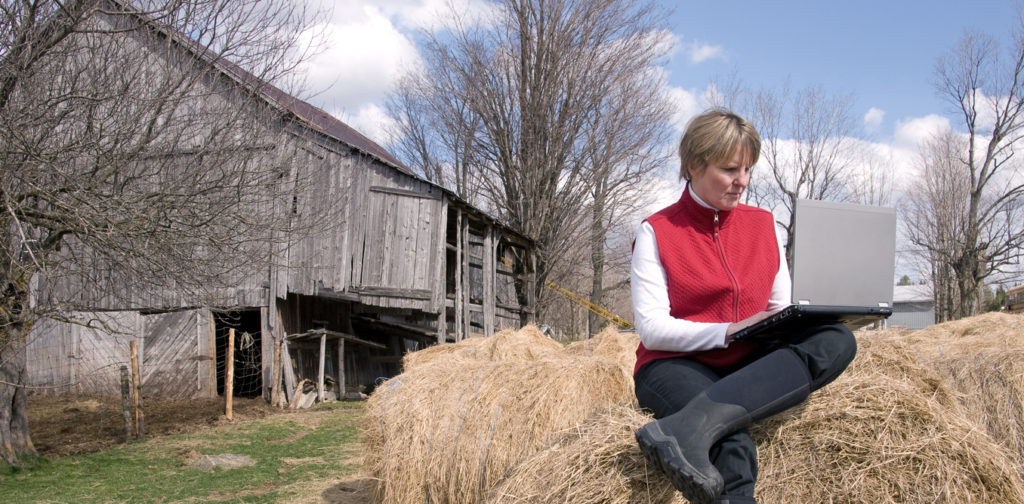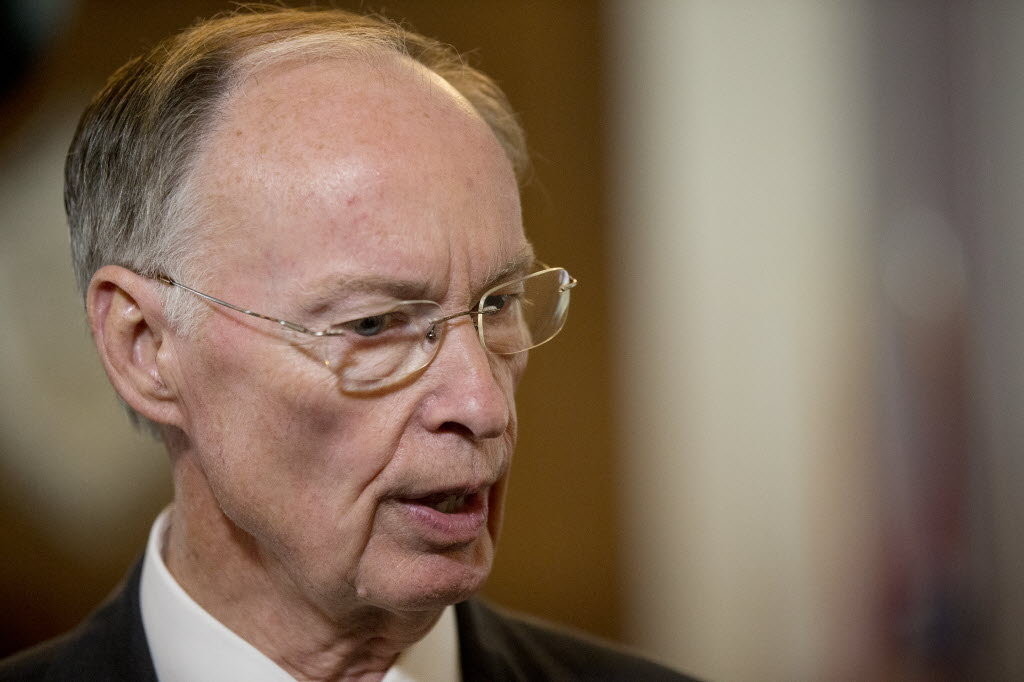Alabama cable providers seek investment of $13M in rural broadband expansion

Alabama cable providers plan to invest more than $13 million to bring broadband telecommunications services to rural Alabama citizens who do not yet have high speed internet services. The investment would be incentivized through $4.67 million in grant funding from the Alabama Broadband Accessibility Fund (ABAF), a state fund established in 2018 to help extend broadband services to rural Alabamians who do not yet have them. ABAF grants fund up to 35% of project costs to extend broadband technology, enabling the full $13 million cable provider broadband investment. For the current ABAF grant cycle, the 18 grants applied for by Alabama cable providers cover nearly 8,000 rural Alabama homes and businesses, including 35 community anchor locations such as rural hospitals and libraries. The grants seek to serve the highest number of unserved homes, businesses and community anchor points (such as hospitals and libraries) for the least cost and best level of service. Projects including the highest broadband speeds are emphasized in the evaluation process. “Alabama’s cable companies have been providing broadband to rural consumers since the late 1990s and we continue efforts to expand broadband in rural areas,” said Michelle Roth, executive director of the Alabama Cable and Broadband Association. “The projects in these grant applications extend high speed internet services to rural Alabamians who currently have no access to them.” The Alabama Department of Economic and Community Affairs (ADECA), which administers the grant program, may rule out applications which they feel do not meet the grant standards of extending broadband to unserved parts of the state. In addition, Roth said grant guidelines also allow for challenges to applications by existing providers. “We are for a fair and open process that does not use taxpayer dollars to duplicate service to customers who already have access to broadband service,” Roth explained. “In light of the current public health concerns that are forcing our students online for their education, we’ve all got to make sure we first roll out new broadband service to rural customers who don’t already have it.”
Doug Jones encourages Alabama rural entities to apply for broadband infrastructure loans, grants

On Friday, the U.S. Department of Agriculture (USDA) announced it is offering up to $600 million in loans and grants to help build broadband infrastructure in rural America. Later that day, Alabama U.S. Senator Doug Jones encouraged eligible rural Alabama entities to apply for the loans to help expand their broadband infrastructure. Telecommunication companies, rural electric cooperatives and utilities, internet service providers, and municipalities may apply for funding through USDA’s new ReConnect Program to connect rural areas that currently have insufficient broadband service. This broadband pilot program is covered through funds secured in the fiscal year 2018 budget as designated by Congress. USDA Rural Development is the primary agency delivering the program, with assistance from other federal partners. “Today, more than ever, high-speed internet is no longer a luxury, but a necessity,” said Jones. “Students rely on connectivity for their education, hospitals and health care providers use telehealth capabilities to reach rural communities, and small businesses need the internet to thrive. It provides economic opportunity, strengthens our communities and connects our workforce throughout Alabama and the nation. This USDA funding is a great opportunity to close the broadband gaps that exist in Alabama and I encourage any eligible entity in the state to apply.” The USDA will make available approximately $200 million for grants (applications due to USDA by April 29, 2019), as well as $200 million for loan and grant combinations (applications due May 29, 2019), and $200 million for low-interest loans (applications due by June 28, 2019). To help customers with the application process, USDA is holding a series of online webinars and regional in-person workshops. The full list of upcoming public webinars and workshops can be found at the ReConnect Program’s resource portal here.
AT&T expands high-speed rural broadband in Alabama

AT&T has expanded Fixed Wireless Internet for rural parts of 39 counties across Alabama that don’t have access to broadband the company announced Tuesday. “In today’s digital economy, access to reliable broadband service is critical. My colleagues and I are working hard to create an environment that supports private investment and enhanced broadband access for all Alabamians. I applaud AT&T’s continued investment and am pleased Fixed Wireless Internet is now available in parts of 39 Alabama counties,” said Alabama 4th District U.S. Congressman Robert Aderholt. “With the use of multiple technologies across Alabama, we will close the access gaps that exist in some of our rural communities.” FWI service delivers an internet connection with download speeds of at least 10Mbps and upload speeds of at least 1Mbps. The connection comes from a wireless tower to a fixed antenna on a customer’s home or business. This is an efficient way to deliver high-quality, high-speed internet to customers living in underserved rural areas1. “AT&T’s Fixed Wireless Internet is offering my family more options in our everyday lives, at an affordable price,” said Shannon Ary, AT&T Fixed Wireless customer. “With FWI, my husband and I can now work from home, which is life-changing, and our children have increased access to educational tools at home, not to mention videos and gaming with friends. We are excited to have access to this innovative technology and pleased AT&T continues to enhance high-speed connectivity in Arkadelphia and other rural communities across Alabama.” The towers used to provide this service are connected to AT&T’s network using AT&T fiber optics. AT&T has more than 2 million strand miles of fiber optics covering Alabama, which enables the company to offer a wide variety of products and services delivering the high-speed connectivity Alabama businesses and residents need. Parts of the following 39 counties in Alabama are now eligible for AT&T Fixed Wireless Internet service: Autauga, Baldwin, Barbour, Bibb, Blount, Butler, Calhoun, Chambers, Chilton, Colbert, Coosa, Cullman, Dallas, Elmore, Escambia, Fayette, Franklin, Greene, Hale, Jefferson, Lauderdale, Lawrence, Lee, Limestone, Lowndes, Macon, Marengo, Mobile, Montgomery, Morgan, Russell, Shelby, Sumter, Talladega, Tallapoosa, Tuscaloosa, Walker, Washington and Winston.
Incentives bill to encourage rural broadband expansion becomes state law

In Alabama, there are more than 842,000 people without access to a wired connection capable of 25mbps download speeds. Over 1 million people in Alabama have access to only one wired provider and another 276,000 people in Alabama don’t have any wired internet providers available where they live. A new law hopes to change all of that by incentivizing the expasion of broadband across rural Alabama. On Wednesday, Gov. Kay Ivey signed SB149, the Alabama Broadband Accessibility Act, which authorizing the creation of a broadband accessibility grant program to be administered by the Alabama Department of Economic and Community Affairs (ADECA). The bill, sponsored by Guntersville-Republican State Sen. Clay Scofield and Geneva-Republican State Representative Donnie Chesteen, also creates the Alabama Broadband Accessibility Fund. “The internet is vital to economic development, health, education, and to be honest, all areas of our modern life. This common sense legislation will help us attract new broadband to areas that need it most, especially in rural Alabama,” said Ivey. “I congratulate Senator Scofield and Representative Chesteen for a job well done in seeing this bill through the legislature. It is just another step forward as we improve access to high-speed internet sooner rather than later.” It’s safe to say — the third time is a charm. The 2018 session was the third time Scofield introduced the bill this quadrennium. “As a senator and a resident of a rural part of Alabama, I understand the need for broadband expansion across our state. With this expansion we can see more growth in our economy, our residents can find better health care and there will be more opportunity for our students to learn,” emphasized Scofield. “I appreciate Governor Ivey for fully supporting our efforts to improve life in rural Alabama.” “I was proud to carry this important legislation in the House of Representatives,” added Chesteen. “As a representative of the citizens of rural Alabama, I see first-hand how a lack of internet connectivity limits the growth of communities. It is important that we get this new program up and going so that our rural communities will be able to take part in the economic growth that our larger areas are seeing,” Through this legislation Alabama encourages accelerated private investment in broadband infrastructure by telecommunications companies, cable companies and electric cooperatives in rural areas. Grants awarded by ADECA under this act may only be awarded for projects in unserved areas. “The Alabama Broadband Accessibility Act gives the state a valuable new tool. With Governor Ivey’s support, ADECA will work under this new grant framework to facilitate the expansion of broadband in rural areas of Alabama that currently lack high-speed internet,” added ADECA Director Kenneth Boswell. Alabama will further be helped by a pilot program, grants and loans from the federal government. Last week, Congress, through an effort led by Alabama Congressman Robert Aderholt, included in the $1.3 trillion omnibus spending bill a $600 million Broadband Pilot Program, created by the Secretary of Agriculture, which will enable applicants to finance a project by combining loans and grants to provide broadband to eligible rural and tribal areas. “This new federal pilot program will help boost broadband expansion in Alabama and around the country. It is a testament to the Trump Administration’s commitment to improving the lives of rural America,” Ivey explained. “I thank Congressman Aderholt for leading the charge on this effort. In Alabama, we plan to take advantage of every opportunity that is provided us, in order to ensure every Alabama citizen has proper access to this vital aspect of our modern-day infrastructure.” The newly created federal investment will leverage nearly $1 billion in total new rural broadband projects across the country.
Incentives bill to encourage rural broadband expansion passes Alabama Senate

Clearly the third time’s a charm when it comes to passing a bill that incentivizes the expansion of rural broadband. Guntersville-Republican State Sen. Clay Scofield re-introduced SB149 — a bill that incentivizes private projects and increases opportunity for rural broadband expansion — for the third time this quadrennium and it finally passed the Senate on Thursday. “In the 1930s the infrastructure challenge was electricity, and in the 60s and 70s it was ensuring rural areas had clean drinking water. Expanding access to broadband internet is the infrastructure challenge of our day. We must ensure that all Alabamians have an opportunity to succeed in the digital economy,” Scofield said. “Currently, thousands of families and businesses in rural Alabama are without access to fast broadband. That’s unconscionable.” The Alabama Rural Broadband Act is a free-market approach to increasing private investment to expand high-speed internet access across the state. The legislation would exempt companies that build qualified broadband telecommunications network facilities in rural areas from sales tax for 10 years. It would also provide a 10 percent investment tax credit, capped at $20 million per company annually. The Alabama Department of Economic and Community Affairs (ADECA) and a legislative oversight committee are tasked with overseeing implementation of the legislation. All of the incentives will expire in five years, unless renewed by the state legislature. “Students, families, and business owners in rural Alabama desperately need fast broadband internet,” said Jasper-Republican Senate Majority Leader Greg Reed. “Senate Republicans are committed to making sure that all of Alabama thrives as our state economy continues to grow. I commend Sen. Scofield for his able leadership in moving this legislation forward.” The World Bank commissioned a study in 2015 that showed a 10 percent increase in broadband penetration could increase economic growth by 1.2 percent. It also stated that doubling broadband speeds can add 0.3 percent to GDP growth. “Seventy years ago, co-ops and private companies invested in bringing electricity to the country, improving life and creating jobs for millions. It’s my hope that this legislation will spur the same expansion with the internet to all those same households and businesses,” Scofield remarked. SB149 now moves to the Alabama House of Representatives for consideration.
Terri Sewell, Dems push for $40 billion investment in rural broadband

Alabama’s own 7th District U.S. Rep. Terri Sewell joined her Democratic colleagues on Capitol Hill Thursday to unveil the party’s $40 billion plan to bring universal high-speed internet service to all Americans. Dubbed, “A Better Deal: Universal High-Speed Internet,” the plan would invest in broadband infrastructure to connect communities that have been left behind by big internet service providers. The plan would upgrade the nation’s critical safety infrastructure and create accurate maps of areas that lack adequate internet access to ensure rural Americans are not left out. It would also modernize 911 coverage in isolated areas. “Universal high-speed internet is not only possible, but it is necessary to the survival of rural America,” said Sewell. “I come from the Black Belt of Alabama, an area that is rich in culture and history, but one which faces an infrastructure and technology crisis that has handicapped families, workers, businesses and communities. Without reliable access to internet services, my constituents in Alabama are being starved of 21st century opportunities.” According to Sewell, 34 million Americans, including 23 million rural Americans, do not have internet access available at an adequate speed and quality. “Access to the internet has the ability to transform our schools, our hospitals, and our communities by way of connecting rural Americans with resources and professionals from across the country,” Sewell continued. “Today’s proposal to make high-speed internet available to all takes an important step towards providing every American with the tools and opportunities they need to interact and connect with the rest of the world.” Specifically, the plan would: Provide direct federal support for a universal internet grant program to close the ‘last mile’ gap: These new funds would be used to bring high-speed internet infrastructure to areas most in need of quality, affordable service. Support would be distributed on a technology- and provider-neutral basis, and would be designed to secure high-speed internet at levels sufficient for the 21st Century in the most efficient and cost effective means possible. The program would also have broad eligibility so that partners like rural co-ops, local governments, or other alternative entities could compete on an equal playing field with private sector providers. Create accurate maps of areas that lack adequate internet access. Deliver internet speeds needed to compete in the 21st century. Upgrade the nation’s critical safety infrastructure: Grants would be made available to states and localities to upgrade critical public safety infrastructure – most importantly, the nation’s aging 911 systems. Modernizing 911 to ensure that text, data, video, and other essential digital information can flow seamlessly from citizens to first responders through an integrated, interoperable 9-1-1 system.
Robert Bentley says, ”I have no intentions of resigning”

Embattled Gov. Robert Bentley visited rural Franklin County in northern Alabama on Wednesday, his first trip to the area since his administration was rocked last by a scandal involving inappropriate comments to a former employee. Bentley spoke to groups in the town of Russellville, where he addressed issues related to rural access to health care and broadband internet. But of course, when he spoke with reporters, the questions quickly went to his alleged misconduct with former political advisor Rebekah Caldwell Mason. Asked whether he would resign, Bentley was definitive: “I have no intentions of resigning. My intentions are to try to make this state better, to work through the difficulties we’re going through.” “Have I made mistakes? Yes. I’m sorry. We have addressed them. I’ve apologized. These are old issues, but it’s just now that people are hearing about them,” Bentley said. “We may have some organizational changes, but we’re going to work through this and I want the people of the state to know how much I care about them. I want the people of Franklin County to know how much I care about them. They’ve known that over the years when I was here for the tornadoes. They know that I love them.” Bentley now faces an investigation by the state’s ethics commission on allegations he violated the terms of his office during the Mason affair. State Auditor Jim Zeigler, a staunch critic of his fellow Republican Bentley, filed the complaint that precipitated the probe.


